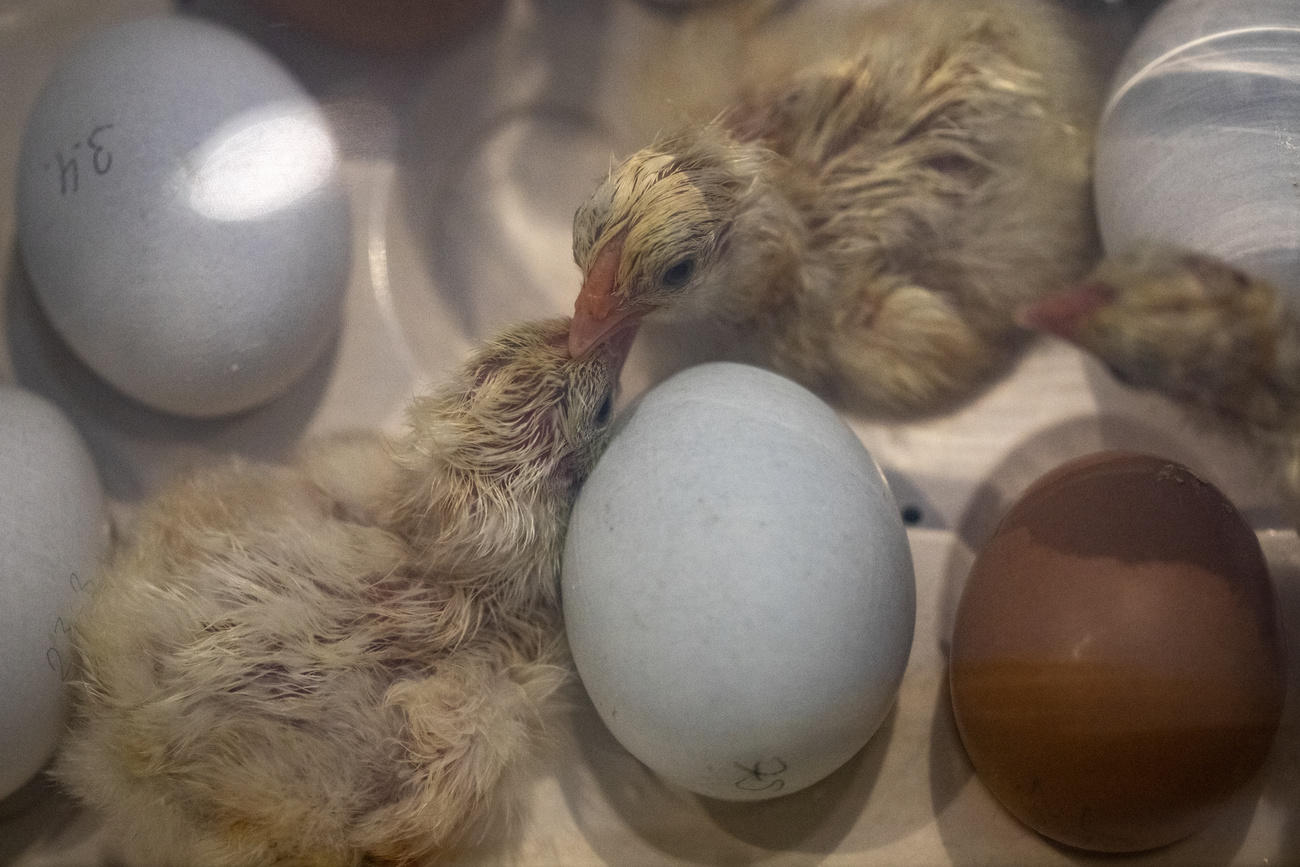Switzerland bans shredding of male chicks

Parliament has voted symbolically to outlaw the shredding of living baby chickens considered useless for the egg production industry. It's part of the Swiss government's ongoing efforts to improve animal welfare.
Many NGOs have praised Switzerland for being a pioneer on animal rights issues compared with European Union member countries. On Thursday, parliament decided to ban the practise of shredding living male chicks, even though this practise is no longer used in Switzerland. Instead, the baby birds must be put to death with CO2 gas.
The practice’s allowance was a rare exception in the restrictive Swiss animal rights law implemented more than ten years ago. Now, politicians insisted on a formal ban.
“This tendency to rear species only for the production of eggs or for meat turns animals into mere objects. It has led to absurd practices such as the shredding of living male chicks,” the House of Representatives committee noted.
The Swiss association of egg producers, GalloSuisseExternal link, welcomes the legal reform. It argues the practice is outdated. In fact, the country’s four main egg hatcheries which provide the hens to poultry farmers had stopped applying the method a few years ago.
However, about three million male baby chickens are gassed in Switzerland every year because it is not worth rearing them for commercial reasons. More than 50% of the culled chicks are processed for animal feed used notably by zoos.
Alternative options
“This tendency to rear species only for the production of eggs or for meat turns animals into mere objects. It has led to absurd practices such as the shredding of living male chicks,” the House of Representatives committee noted.
The farming sector is taking the political concerns very seriously. “We are working hard to find alternative options,” says Daniel Würgler of GalloSuisse. “We hope to find the best possible solution taking into account all aspects, including consumers, production costs, resources available, animal welfare, ethics, the ecosystem and so on,” he says.
Two options are currently being tested in a trial phase in Switzerland. One sees farmers rearing all the male chicks for poultry meat production. Another pilot project tries to evaluate the use of chickens both for the egg and the meat market.
But as the GalloSuisse president points out, there are a number of practical issues to be solved before such production methods can be applied at a global level. “At the moment it is just a niche production method,” Würgler adds.
The alternative options need more resources and are not sustainable, he says. In addition, most consumers apparently don’t buy meat from egg-laying hens.
Poultry farmers have high hopes that it will be easier to determine the gender of a baby chick still being hatched in the egg. Several studies are underway in different countries across the world but so far, no method has been found that can be used at an industrial level in hatcheries.
Awaiting a sustainable solution for commercial use, the chicken farmers focus on the issue of animal welfare, assures Würgler. “Respect for the animal from its first day is of crucial importance for us.”
Animal welfare
Switzerland is among the leading countries championing high standards of animal welfare, according to an index produced by the NGO World Animal Protection and several studies by the organisation Swiss Animal Protection.
The relatively humane conditions in Switzerland are the result of legal restrictions, government support and special consumer labels which encourage producers to use less cruel methods of animal farming.
The Swiss government, industry as well as consumers have pledged to continue efforts to improve animal farming conditions. The ban on the shredding of chicks was the latest example.
Adapted from French/urs

In compliance with the JTI standards
More: SWI swissinfo.ch certified by the Journalism Trust Initiative











You can find an overview of ongoing debates with our journalists here . Please join us!
If you want to start a conversation about a topic raised in this article or want to report factual errors, email us at english@swissinfo.ch.